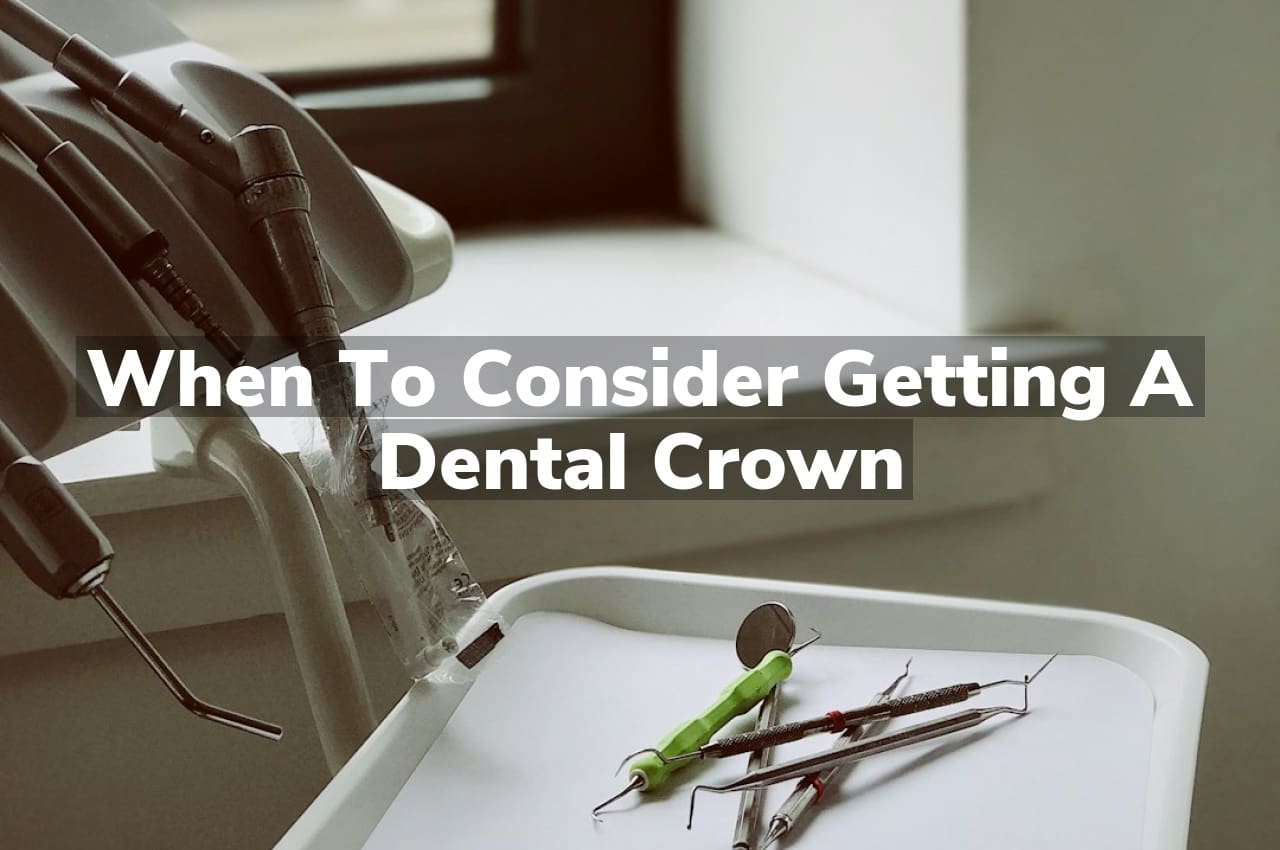Are you wondering when it might be time to consider getting a dental crown? This decision often arises when a tooth is damaged or decayed beyond what a simple filling can repair, or to protect and strengthen a tooth after significant dental work. Understanding the circumstances can help guide you in making an informed choice about your dental health.
Signs of Tooth Decay
Tooth decay is a common dental issue that can lead to the need for more significant dental interventions, such as dental crowns. Recognizing the early signs of tooth decay is crucial for maintaining oral health. Some of the most noticeable signs include persistent toothache, sensitivity to hot and cold foods or drinks, visible holes or pits in your teeth, and brown, black, or white staining on any surface of a tooth. When these symptoms are present, it’s essential to consider the health of your teeth and the potential need for dental procedures to restore their function and appearance.
For those interested in understanding how dental crowns can be a solution to problems caused by tooth decay, exploring the topic further can provide valuable insights. Dental Crowns: Their Role in Dentistry offers an in-depth look at how crowns are used to cover and protect damaged teeth, restoring them to their original shape and function. This protective measure not only improves the appearance of teeth but also prevents further decay by sealing off the area from bacteria and decay-causing substances.
After Root Canal Treatment
Following a root canal treatment, many patients might wonder about the next steps in their dental care journey. A root canal procedure involves removing the infected or damaged pulp from inside a tooth, which can leave the tooth weakened and more susceptible to fracture. Because of this, dentists often suggest additional protection for the treated tooth to ensure its longevity and functionality. This is where the consideration for a dental crown comes into play. Dental crowns act as a cap for your tooth, providing it with strength, restoring its shape, size, and appearance, and protecting it from further damage.
The decision to get a dental crown after a root canal treatment is significant for maintaining oral health and ensuring the durability of the tooth involved. Crowns are custom-made to fit over your tooth perfectly, offering a seamless and natural look. They are an essential step for many individuals in preserving the structural integrity of a tooth post-root canal, ensuring that patients can continue to enjoy a full range of dental functionality. For those looking into their options for a dental crown, seeking professional advice is crucial. If you’re considering this as your next step, Expert Dental Crown Installation, Yorba Linda can provide you with the information and services you need to make an informed decision.
Cracked or Broken Teeth
When it comes to dental health, cracked or broken teeth are common issues that many individuals face. These types of dental concerns can arise from a variety of causes, including accidents, biting down on hard objects, or even natural wear and tear over time. When the integrity of a tooth is compromised, it can lead to further dental problems if not addressed. In such cases, seeking professional advice is crucial to understand the available options for maintaining optimal dental health.
Cosmetic Enhancement Needs
When considering the aesthetics of your smile, dental crowns can play a significant role in enhancing the overall appearance of your teeth. Whether it’s improving the shape, color, alignment, or even the size of a tooth, crowns offer a versatile solution for various cosmetic concerns. They are particularly beneficial for individuals looking to restore their smile’s natural beauty or achieve a more uniform look. It’s essential to consult with a professional to understand how this option can meet your specific cosmetic enhancement needs. For those seeking expert advice, consider reaching out to Yorba Linda Dentist at Dentique for more information.
Large Filling Replacement
When a tooth has a large filling, there may come a time when considerations for its replacement are necessary. Large fillings, especially those that have been in place for many years, can sometimes fail or lead to further decay of the tooth structure surrounding them. In such cases, a dental crown might be considered as an option. A crown can provide a more comprehensive coverage and support to the tooth, helping to restore its function and appearance while also protecting it from further damage or decay. This is particularly relevant when the structural integrity of the tooth is compromised, making it difficult to support a new filling or when the aesthetic outcome is a significant concern.
Conclusion
For more insights, read reviews on Google Maps or call us at (657) 234-0430 to discuss your options.
